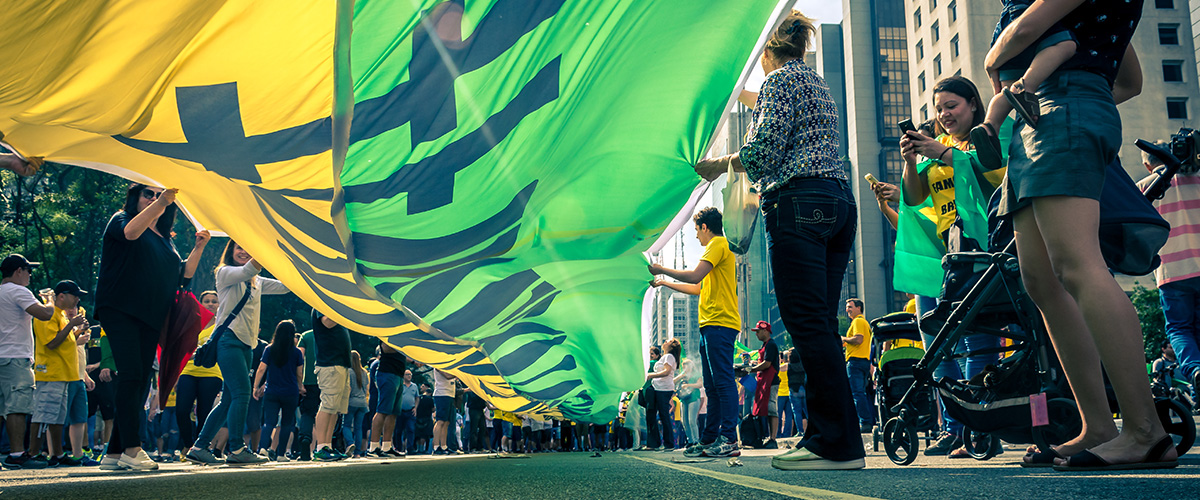Comparison of the Presidential Election on Brazil’s Economic Outlook
In the first round of the election, Lula attracted 48% of the votes, but failed to secure the majority needed for an outright victory. Bolsonaro won 43%, outperforming previous expectations of most opinion polls. Brazil’s economic outlook and interest in who take power in Brazil on October 30th will be high, due to the threat of trade issues and threat to democracy. Brazil and the US have had similar struggles over the past few years with high death tolls from the pandemic, and now face high levels of inflation.
The trade between the two countries is plentiful including aircrafts, petroleum, iron, steel, and both make similar commodities. Brazil is the largest producer of soy and orange, while the US produces more corn, beef, turkey, and chicken.
Here’s a breakdown of Lula and Bolsonaro and what they plan to bring to the presidency if elected.
Lula
- Left-wing, former trade union leader
- Focused on increasing protection of Amazon deforestation
- Wants to eradicate hunger in Brazil by strengthening income transfer programs
- Wants to resume multilateral international policy and regional leadership
- Has close relationship with regimes of Cuba, Nicaragua and Venezuela which is of concern
- Advocate of BRICS (bloc made up of India, Russia, China, South Africa and Brazil – some saw this as challenge to western power
- Focused on bringing back the prosperous economic times when he was in office and tackle hunger and poverty levels
- Would focus on cooperation with Global South and regain prominent role internationally
- Common ground to be found internationally on climate change initiatives
Bolsonaro
- Right-wing, populist, former military army captain
- Made long-awaited pension reform and wants to continue reforming Brazilian state
- Wants to battle gender ideology and use Christian principles
- Facilitate access to weapons for citizens
- Considers himself a shield against spread of communism in south America
- Proposes a continuation of economic priorities, doubling down on a business-friendly, open market economy and diminishing the size of the state through privatizations
Neither candidate has focused on important issues such as reviewing the tax system and investing in infrastructure and education, needed for long-term growth.
The Bolsonaro government reduced spending on Amazon protection. Lula wants to protect it. The focus during the election has been very internal. The next president must align his foreign policy to meet the domestic demands and international challenges as well as the internal focus they both already have.
Get in Touch
Looking For a FREE Quote?
Obtaining a free Trade Credit Insurance quote or just some more information is fast and easy! Get in touch with us today.
Get Started Call 800-822-3223The critical element moving into next year would be the consequence of the monetary policy and of the inflation that Brazil has been trying to tackle in the last months. Brazil has shown a robust reducing trend, but this has come to a very high interest rate (selic rate), that is now in the range of 13.75%. The sharp and rapid increase has succeeded in reducing the level of inflation. The problem now is that the real interest rate applied to the debt is now becoming higher and higher, the debt contracts in Brazil are all indexed, and the impact of the credit crunch across the board for all the industries is even more effective. This creates significant problems in terms of liquidity and cash consumption in serving the debt.
Inflation as well as the level of unemployment rate is reducing. The reducing purchasing power also caused by the level of inflation is not compensated by the increasing level of salaries. The Brazil economy expanded by 4.6% in 2021, recovering immensely from the 3.9% contraction in 2020 due to the pandemic. This was supported by money provided for the pandemic and extended by the government to support the economy. Currently, what’s giving the GDP stability is the central bank that has reserves as well as a solid banking system and operates independently. Fiscal adjustment will be needed to continue reducing service sectors affected by the level of inflation. Currently, there is a modest projected growth in GDP at around 0.91%.
Economists expect the GDP growth to slow next year to less than 1% due to high interest rates, political uncertainty, and unfavorable global scenarios. Brazil’s economic outlook has struggled to find a good model for broad economic growth. This combined with the collapse of commodities prices, became a recession. There was already a sizeable fiscal deficit causing a major economic weakness prior to the pandemic. The next administration will face the challenge of establishing additional structural reforms to put government debt on a sustainable path and rebuild fiscal credibility for long-term investor confidence.
Regardless of who wins the election, Brazil will be a major international player, with whom the US needs to work with, without dominating. Their priority should be on fostering economic growth and sustainable development, while maintaining fiscal responsibility. Guaranteeing a stable political environment and an attractive business climate will be important for attracting foreign investment and long-term prosperity.


